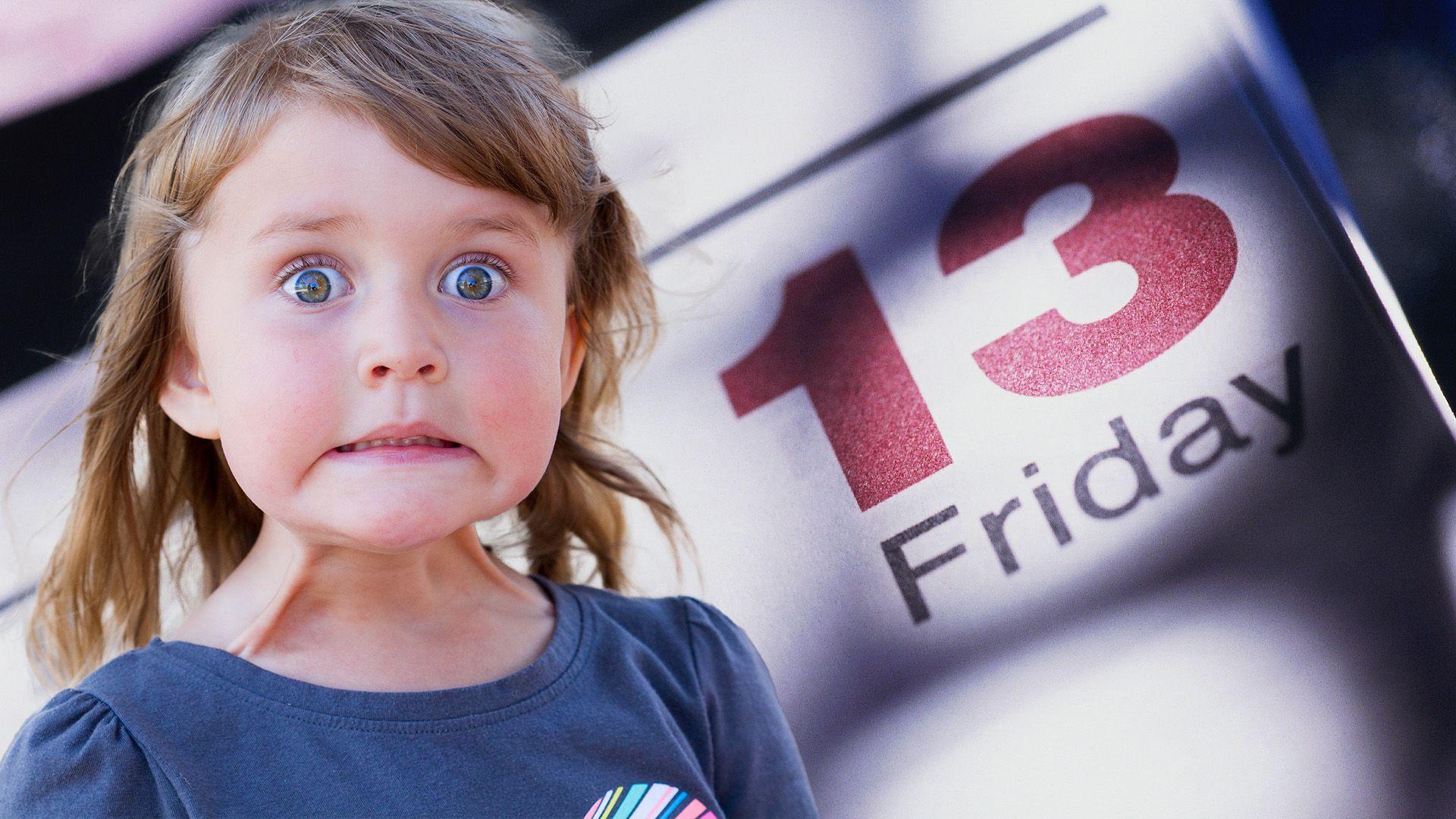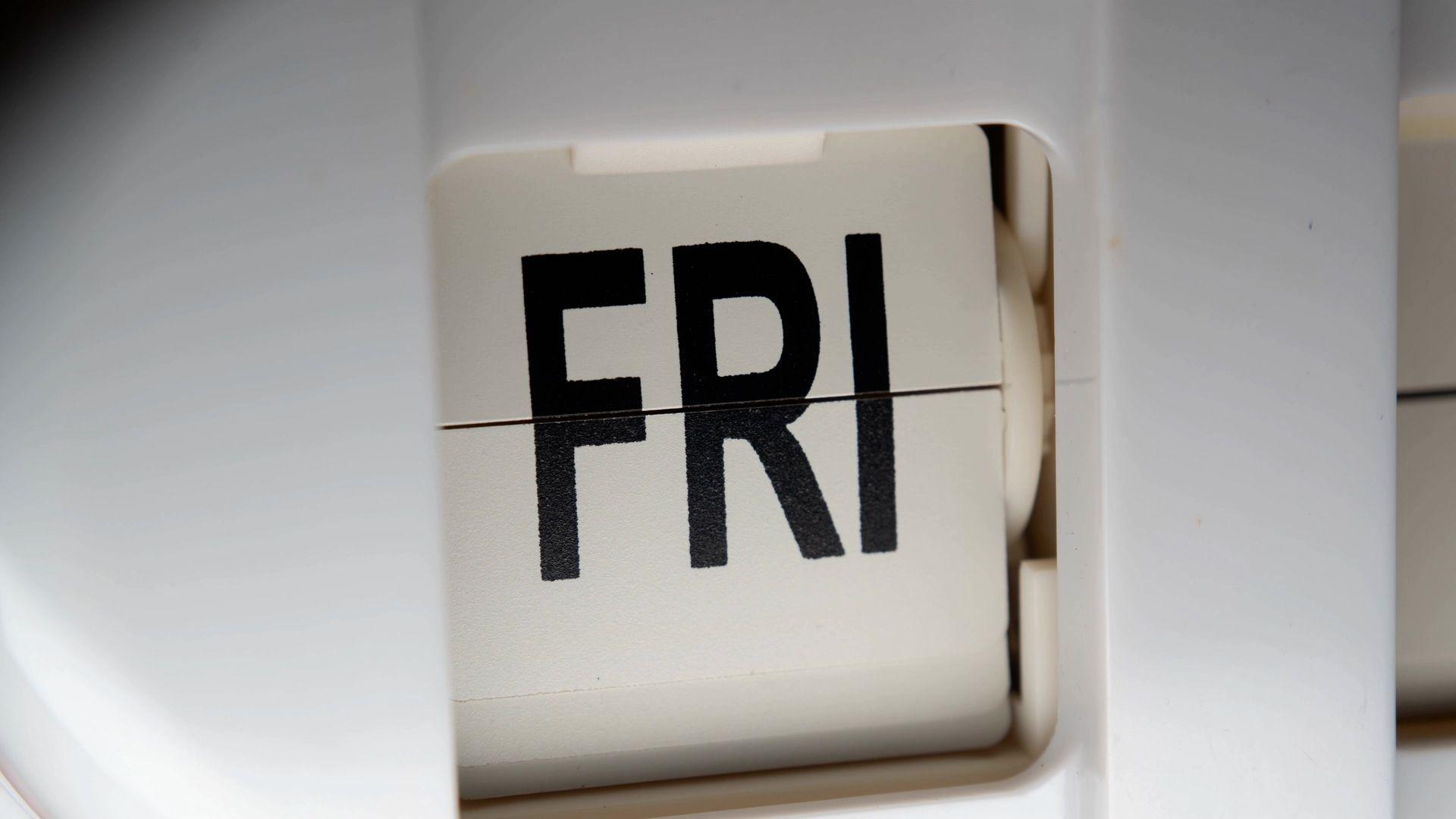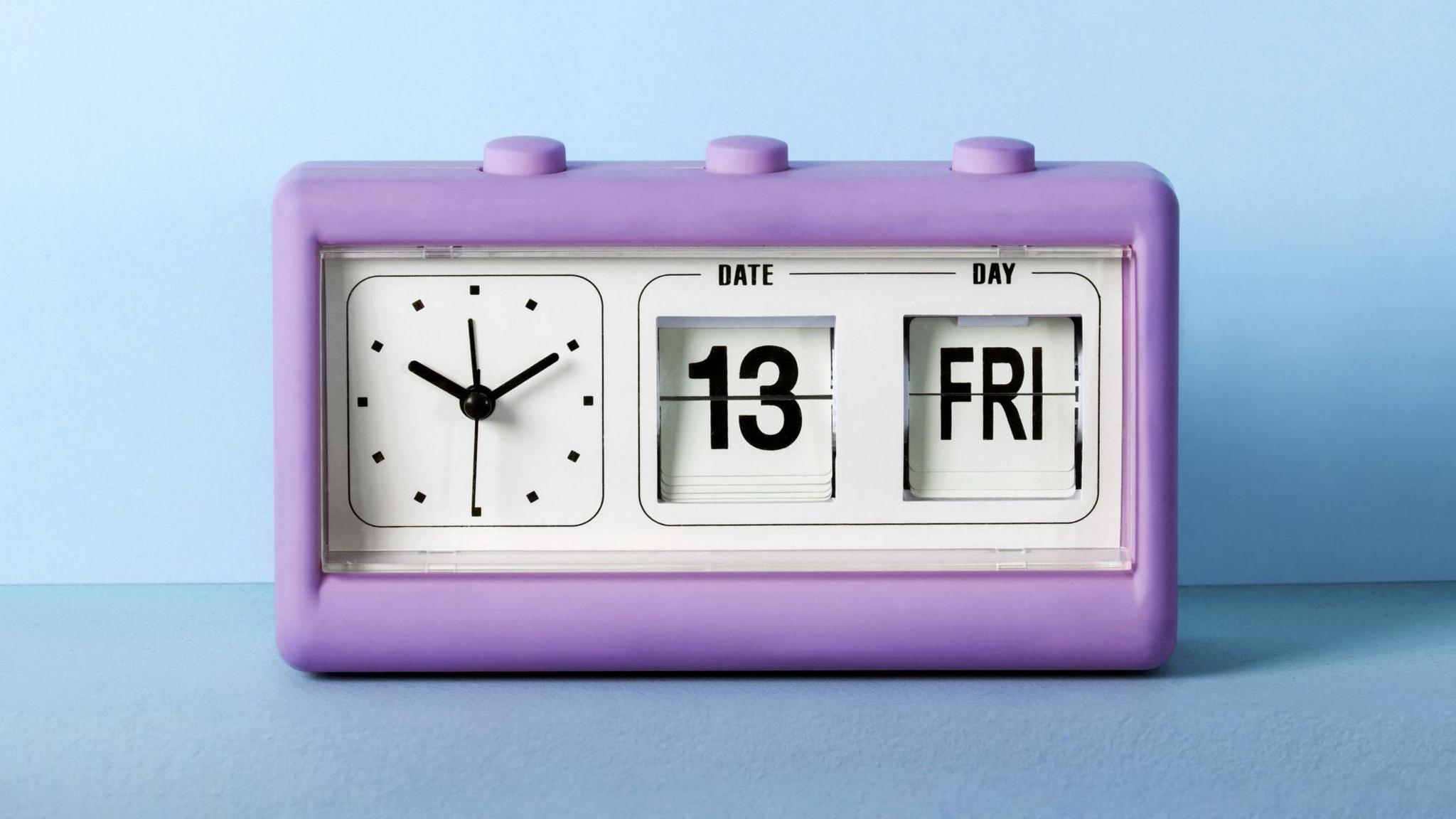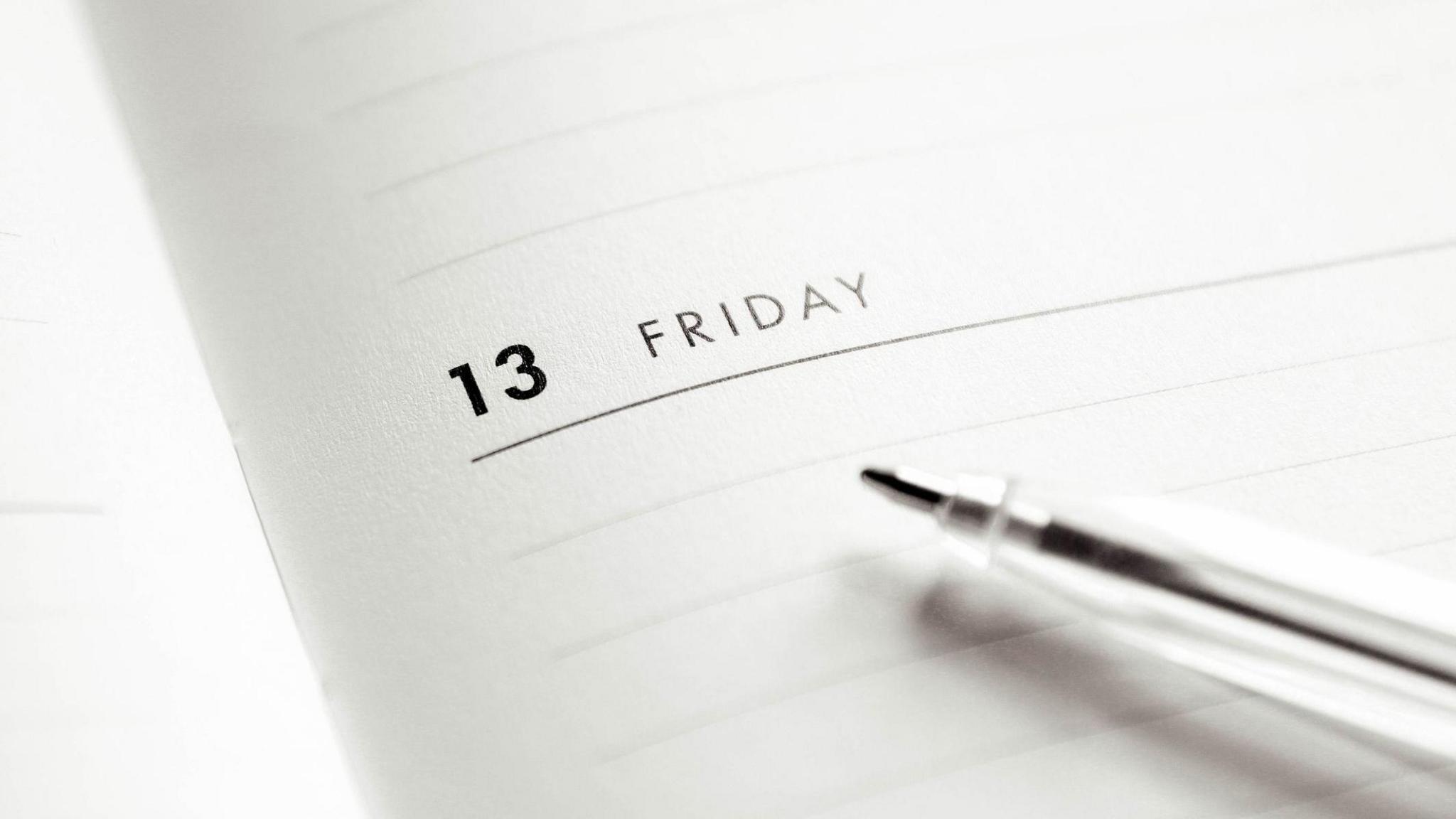Friday 13th superstitions and history: Why is it believed to be unlucky?

- Published
Does seeing Friday 13th in the calendar fill you with dread?
It's a long-standing superstition in western culture that the day is unlucky and some people think bad things could happen when it comes around.
No one really knows where this superstition came from but both the number 13 and Friday have a long history of bringing bad luck.
It's the combination of the two that makes the day the most feared...read on to find out more!
More on superstitions
- Published13 May 2022
- Published12 July 2024
- Published1 August 2023
'Unlucky' 13

Even today some people think it's unlucky to have 13 people sat around a table
Some people think the reason why the number 13 is thought to be bad luck comes from the Bible.
Judas, the disciple who betrayed Jesus, was the thirteenth guest to sit down to the Last Supper.
In Norse mythology, a dinner party of the gods was ruined by the thirteenth guest called Loki, who caused the world to be plunged into darkness.
Even today, it's considered unlucky to have 13 people sitting at a dinner table, and some people pop a teddy bear in a seat to make up the number of guests up to 14!
Because of the superstitions around the number 13, some hotels will have no room 13, while a lot of buildings with multiple floors will skip number 13, jumping straight from 12 to 14.
Some airlines also choose to skip a row 13 in their planes too.
'Unlucky' Friday

For hundreds of years Friday has been considered the unluckiest day of the week.
There are some stories in the Bible where bad things happen on a Friday, like the day the Great Flood began and some people believe it's the day Adam and Eve committed the first sin.
In Geoffrey Chaucer's Canterbury Tales, written back in the 1300s, he says "and on a Friday fell all this mischance".
In Britain, Friday was once known as Hangman's Day because it was usually when people who had been condemned to death would be hanged.
But Good Friday - the day of Jesus Christ's crucifixion - is thought to be the only Friday that bucks the trend, hence its name.
Sailors thought setting sail on a Friday was unlucky but would sometimes begin a long voyage on Good Friday because of its holy connections.
Fear of Friday 13th?

There is at least one Friday 13th every year
The combination of Friday and the number 13 as a day of particularly bad luck seems to be a relatively recent tradition - perhaps only about 100 years old.
It was first written about in an article in a French literary magazine in 1834 where it states: "It is always Fridays and the number 13 that bring bad luck!"
A French play from the same year has a character which says: "I was born on a Friday, December 13th, 1813 from which come all of my misfortunes."
There's even a special word for the fear of Friday 13th - paraskevidekatriaphobia.
Good luck trying to pronounce that word!
There's at least one Friday 13th every year, with some years seeing as many as three.
In 2025, there is only one: Friday 13th June.
Is Friday 13th unlucky around the world?

Not every culture believes Friday 13th is unlucky
In Islam, Fridays are thought to be the holiest day of the week.
In Judaism, Friday evening marks the starts of the Shabbat - the Jewish day of rest - while the number 13 is also generally considered lucky.
People in Spain and Greece consider Tuesday the 13th to be unlucky while in Italy it's Friday the 17th.
And in Japan and China, the 4th of April is thought to be unlucky.
What are your Friday 13th superstitions? Let us know in the comments.
